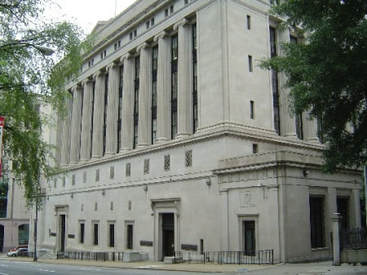|
by Ridhi Shetty Responsive Law has issued comments to the Virginia State Bar Standing Committee on Legal Ethics regarding proposed amendments to the bar’s rules on unauthorized practice of law (UPL). Responsive Law urged the Committee to amend the UPL rules to require a showing of consumer harm rather than making a blanket prohibition on services provided by non-lawyers. Doing so could create more affordable legal services for low- and moderate-income people and would also reduce the potential antitrust liability of the Virginia State Bar.  With the justice gap extending across income levels, bar associations need to rethink the protectionist and anticompetitive methods they use to keep non-lawyers from providing services. Virginia’s UPL rules as amended would do nothing to increase access to legal services. Indeed, they would further anticompetitive practices by requiring lawyers to turn in non-lawyer legal service providers even though Virginia’s ethics rules do not have this requirement. The Supreme Court decided in 2015 in North Carolina Board of Dental Examiners v. Federal Trade Commission that when a controlling number of the decision-makers on a state licensing board actively participate in the occupation they regulate, the board is only immune to state action if it is actively supervised by the state. Under Dental Examiners, bar associations like the Virginia State Bar can be liable for stifling competition from non-lawyers. The Committee engages in this kind of anticompetitive practice in the name of consumer harm prevention, but claims of consumer harm should be met with skepticism unless raised by the very party affected: consumers. The fact is that not only do most non-lawyer legal service providers exist without causing substantial consumer harm, but their customer satisfaction levels are often comparable to or better than lawyers’ customer satisfaction levels. In contrast, lawyers have shown a higher incidence of disciplinary complaints than non-lawyer legal service providers. The Virginia State Bar’s ethics counsel has even acknowledged that the Virginia State Bar cannot prove that non-lawyer legal service providers cause the consumer harm that the Virginia State Bar is trying to prevent. The proposed amendments take a more piecemeal approach by allowing certain non-lawyers such as real estate agents to provide certain services, such as escrow, closing, and settlement. While we appreciate that this approach recognizes the value of these non-lawyer services, a better solution would be not to make individual exceptions to UPL rules, but rather to more broadly allow non-lawyers to provide services to the extent that there is no consumer harm. You can read the full text of Responsive Law’s comments to the Virginia State Bar Standing Committee on Legal Ethics here. Donate now to help Responsive Law continue the fight for a more responsive legal system across the United States. Ridhi Shetty is a Responsive Law intern.
0 Comments
Leave a Reply. |
Blog History
Archives
February 2024
Categories
All
|
-
Advocacy
- Requiring Public Oversight of Lawyer Regulation
- Non-Lawyer Assistance and Unauthorized Practice of Law >
- Alternative Business Structures
- Lawyer Advertising
- Online Legal Services and Multijurisdictional Practice
- ABA Commission on the Future of Legal Services
- ABA Commission on Ethics 20/20
- Protecting Client Rights
- Limited Scope Representation ("Unbundled" Legal Services)
- Simplifying Courts
- Blog
- Issues
- About Us
- Donate
- Top Stories 2023
- Legal Help
- Report Card
- Receive Updates

 RSS Feed
RSS Feed